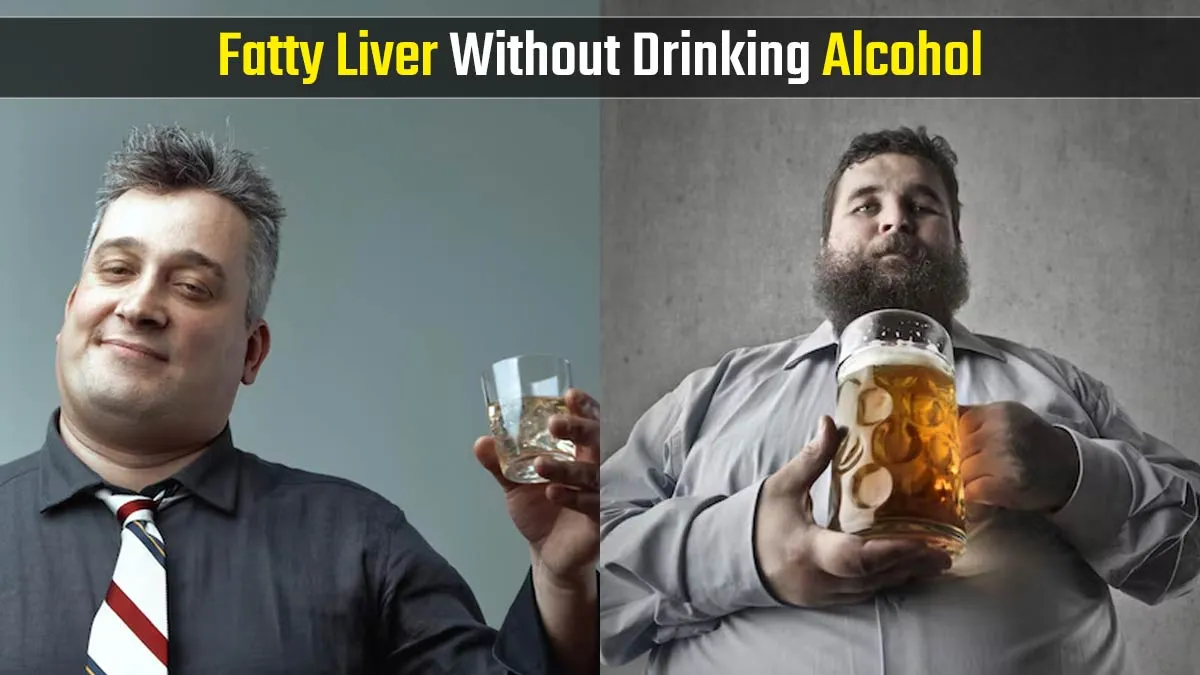
The liver is an important organ in our body that helps with many functions, like cleaning toxins, processing food, and making proteins. Unfortunately, we often ignore liver health until problems arise. One common issue is fatty liver disease, where too much fat builds up in the liver. Many people think this only happens from drinking too much alcohol, but many people develop fatty liver disease without ever drinking.
Table of Content:-
To help us understand how this can happen, a liver specialist shares the causes and treatment options. Keep reading to learn if you might be at risk and discover prevention tips from the expert.
Fatty Liver Disease Without Alcohol Consumption
View this post on Instagram
Fatty liver disease is usually linked to drinking too much alcohol, but many people develop this condition without ever drinking. Dr Saurabh Sethi, Gastroenterologist, Hayward Clinic, California, explained some of the main causes of this disease.
“The culprits are bad seed oils and high fructose in your diet,” said the liver specialist. Explaining which foods have both of these, he revealed that ultra-processed junk food is the main reason. “If left unchecked, fatty liver can cause scarring in your liver and one may need a liver transplant,” said Dr Sethi.
How Does Ultra-Processed Food Contribute to Fatty Liver Disease?
According to a study published on PubMed, ultra-processed foods (UPF) contribute to non-alcoholic fatty liver disease (NAFLD) primarily through their poor nutritional profiles. These foods are often high in unhealthy fats, added sugars, and low in fibre, leading to excessive calorie intake and weight gain. They are significant risk factors for NAFLD. The consumption of UPF can also increase inflammation and oxidative stress in the liver, damaging liver cells and promoting fat accumulation. Additionally, UPF can disrupt gut health and contribute to insulin resistance, further increasing the risk of developing fatty liver disease. Reducing the intake of ultra-processed foods is a key strategy for preventing NAFLD and improving liver health.
ALSO READ: What Is Mitahar: The 50-25-25 Rule? Tips To Beat Bloating and Gas Issues
When To See A Doctor?
-1738658557194.jpg)
If you think you might be at risk, the doctor suggested three steps you can take.
- Get Checked: Consider a blood test and an ultrasound to check your liver health and find any early signs of damage.
- Eat Healthier: Cut down on ultra-processed foods and sugary snacks. Instead, eat high-fibre fruits like berries, apples, pears, oranges, and slightly green bananas; they are good for your liver.
- Improve Your Sleep: Poor sleep can increase your risk for fatty liver. Aim for 7 to 9 hours of good sleep each night.
Best Foods to Eat to Prevent Fatty Liver Disease
Eating a healthy diet is very important for preventing fatty liver disease. Try to avoid simple sugars, like table sugar and fructose syrups.
- Fruits and Vegetables: Choose high-fibre options like berries, apples, oranges, and leafy greens.
- Whole Grains: Opt for oatmeal, brown rice, and whole wheat bread for added fibre.
- Fatty Fish: Include salmon, sardines, and trout for their omega-3 fatty acids.
- Nuts and Seeds: Snack on walnuts and flaxseeds for healthy fats.
- Healthy Fats: Use olive oil for cooking.
- Garlic: Add garlic to meals for flavour and health benefits.
- Green Tea: Drink green tea for its antioxidants.
- Coffee: Moderate coffee consumption may protect liver health.
ALSO READ: Are Your Split Nails a Sign of Anxiety? Here Is How Stress Cause Nails To Split
Conclusion
Fatty liver disease can occur even in individuals who abstain from alcohol consumption. It is primarily through mechanisms related to obesity, metabolic dysfunctions, and dietary habits. Awareness of these factors is vital for early detection and intervention. By adopting healthier lifestyles and managing associated health conditions, individuals can significantly mitigate the risks associated with the disease. Regular check-ups are recommended for those at risk to monitor liver health proactively.
Also watch this video
How we keep this article up to date:
We work with experts and keep a close eye on the latest in health and wellness. Whenever there is a new research or helpful information, we update our articles with accurate and useful advice.
Current Version
